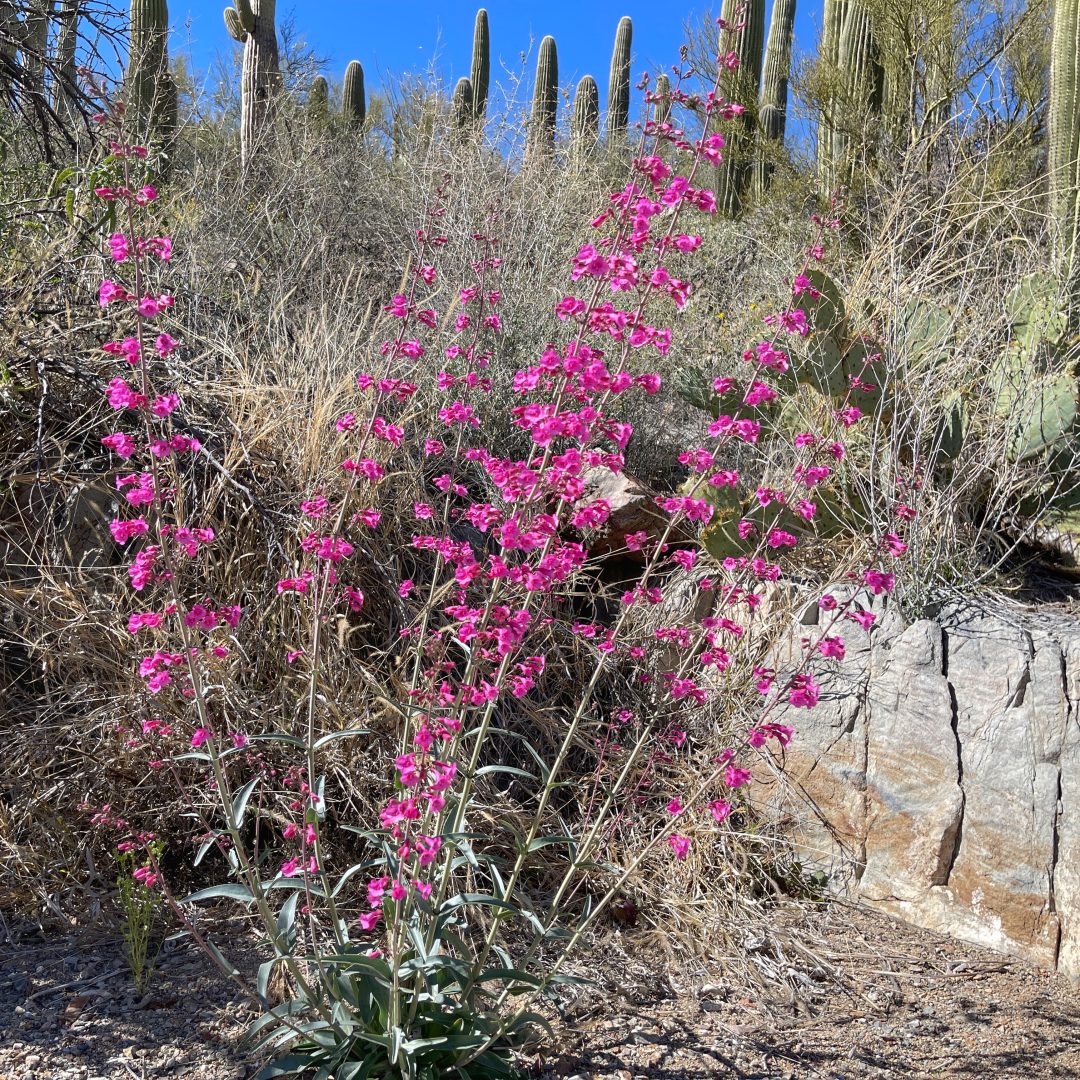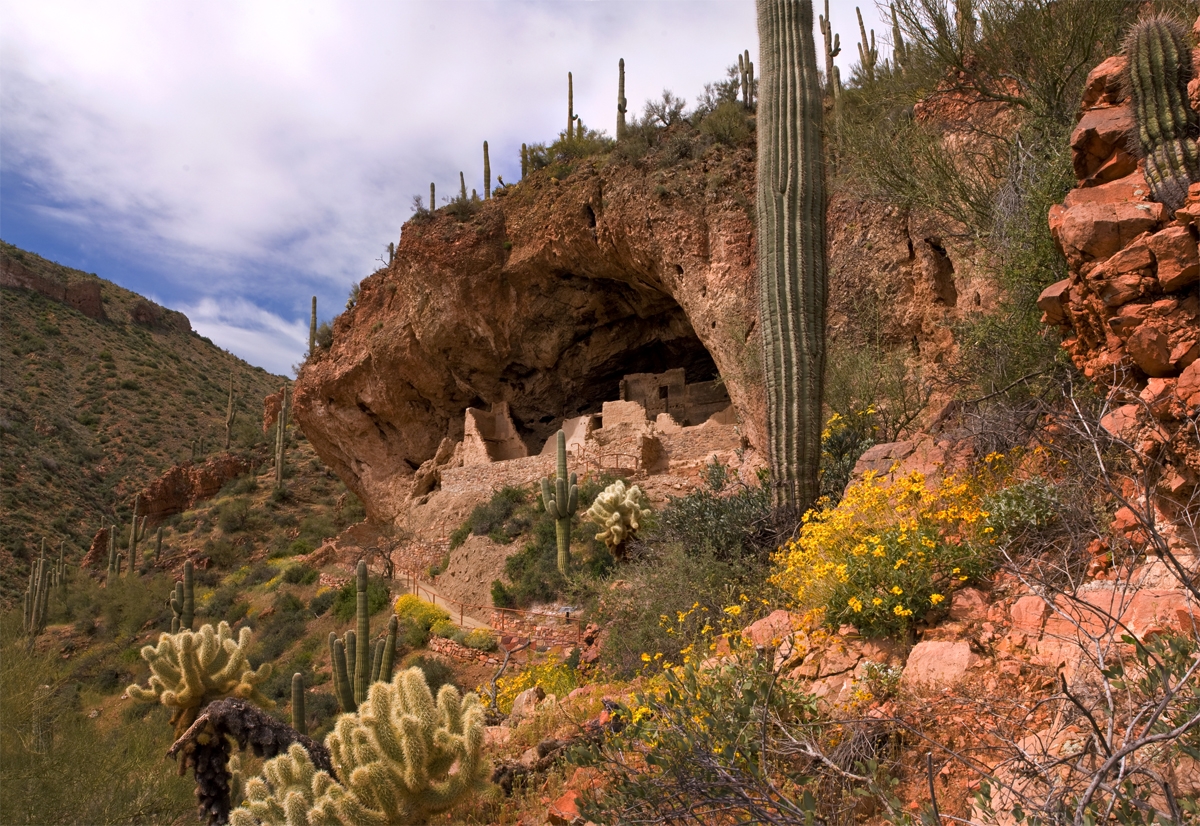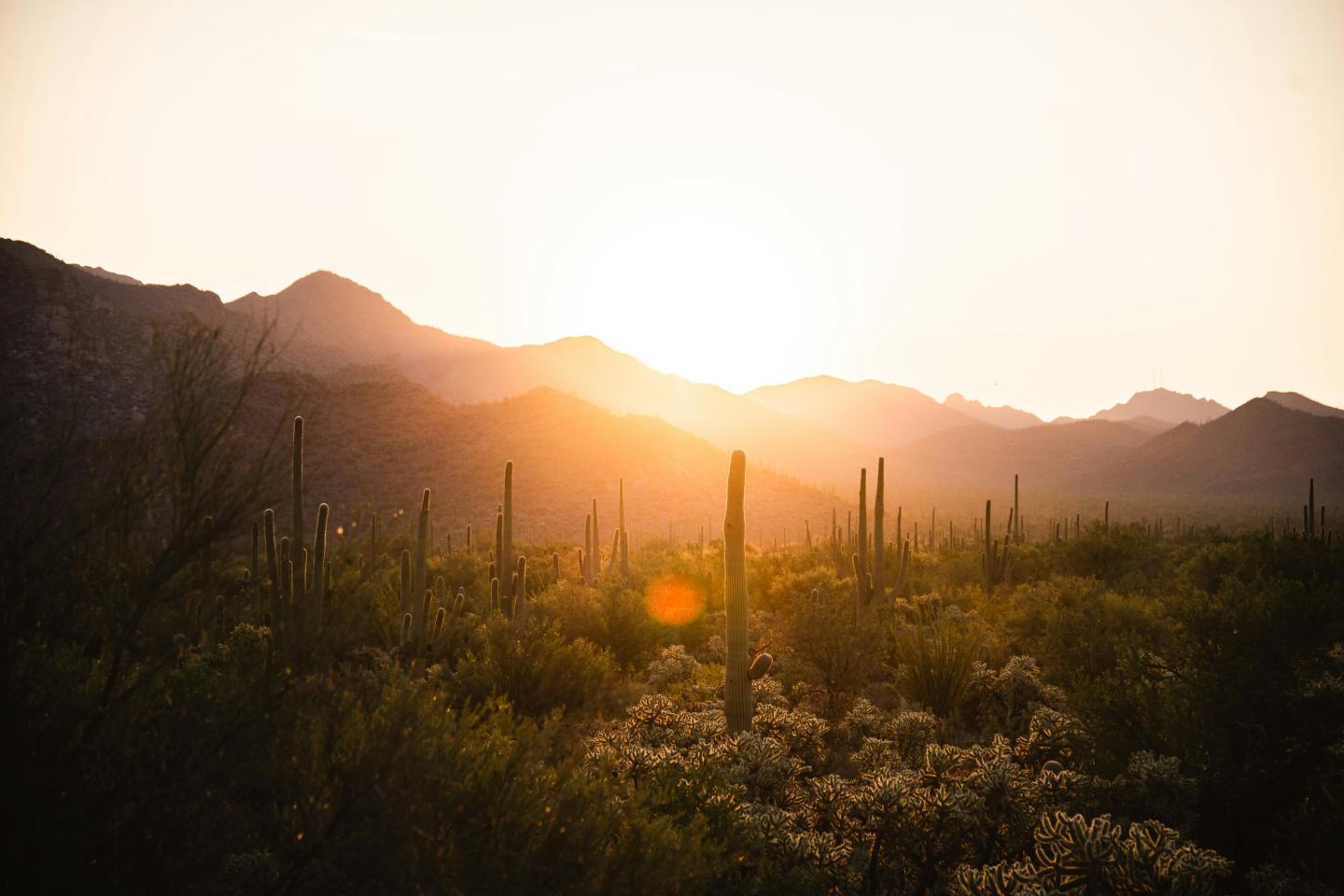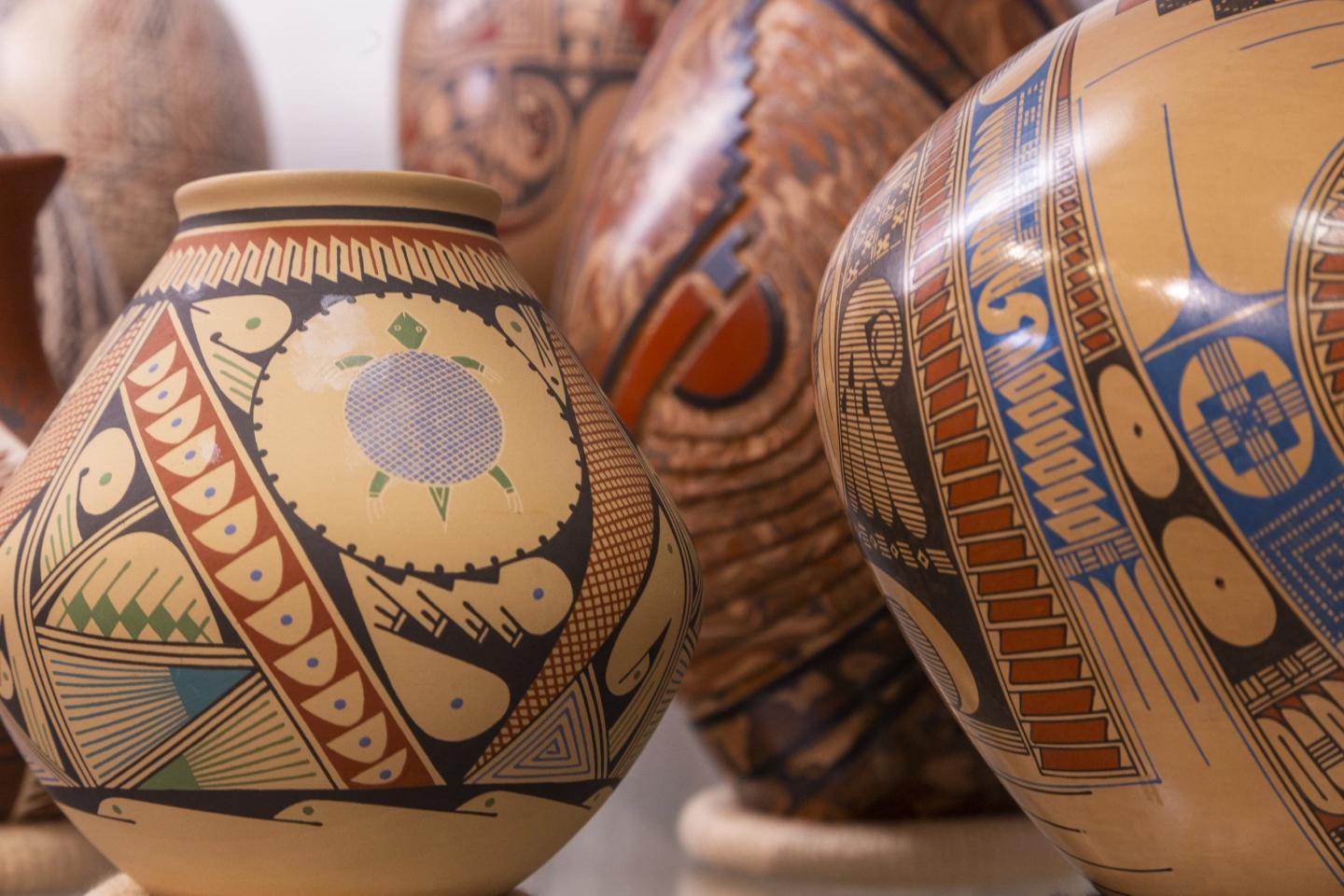
Casa Grande Ruins National Monument
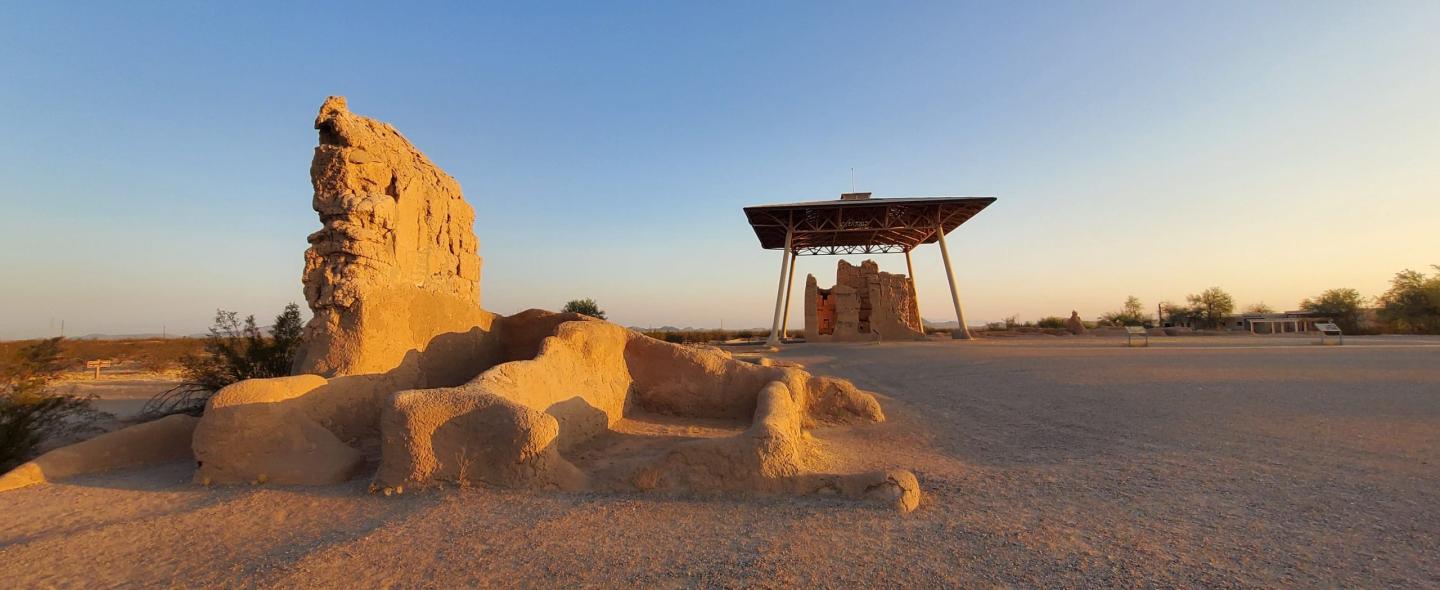
A window into the culture and brilliance of the ancestral Sonoran Desert peoples at Casa Grande.
Just a 20 minute drive off the I-10 highway between Phoenix and Tucson, Casa Grande Ruins National Monument rests, a nearly 700-year-old architectural marvel preserved in the Sonoran Desert. Here, visitors can learn of an extraordinary culture whose descendants still live and thrive in the area. Many for whom this land is home return to share stories and connection. The Great House inspires respect and reflection as all who visit consider the efforts and brilliance behind the engineering and construction. In the visitor center, interactive exhibits and a beautiful park film introduce the cultures connected to the structure and the lands themselves. In addition to Casa Grande, the most prominent structure, you can also explore a ballcourt shaped from the packed desert earth and a pollinator garden. Come prepared with sunscreen and plenty of water, and borrow an umbrella from the visitor center for more sun protection. Once you arrive, you’ll want to spend some time as you walk this storied land. The park has no admission fee, so is called a “fee-free” park, and has ample picnicking areas for those who need a rest from the road.

A Short History of Change
By Pam Tripp, Casa Grande Ruins National Monument
What might a person first think when hearing or seeing the name Casa Grande Ruins National Monument? For many they see the familiar brown sign on the side of the highway telling them there is a National Park Service site just a few miles away, a stop along their trip between Tucson and Phoenix, or a stop between the larger sites of Grand Canyon and Saguaro National Parks. Some are drawn in to find out what the site is about, while others know they will be able to get another stamp for their national parks passport book. And most are excited to see another of the 22 park sites in Arizona.

Siwan Wa’a ki, Sivan Vah’ki, Casa Grande, The Great House
Once they arrive, they first see a large adobe structure with a tall roof shelter over it. This structure, known as the Great House, (Siwan Wa’a ki or Sivan Vah’ki in O’odham language), is the main structure visitors think about when they hear the park’s name. But once they visit this place, they leave with knowledge of an Indigenous culture that have built lives here for centuries.
Six Indigenous tribes are affiliated with Casa Grande Ruins. They are four O’odham tribes, The Tohono O’odham Nation, Gila River Indian Community, Ak-Chin Indian Community, Salt River Pima-Maricopa Indian Community, as well as the Hopi Tribe and Zuni People. They remain connected to this area and continue to live and reside on ancestral lands.

Want to help preserve these significant lands for generations? Your donation supports kids’ programs, research, Indigenous artists’ demonstrations, and more!

Changes Over Centuries
Evidence suggests the ancestral Sonoran Desert People were from an earlier hunting and gathering culture that began around 5,500 BCE. They made use of the many native plants and animals of the desert. These included cactus fruits, pads and buds, mesquite beans, and the medicinal creosote bush. The local game included birds, squirrels, rabbits, snakes and lizards, as well as fish and clams from the rivers and canals. Larger game such as mule deer and bighorn sheep could be hunted in the mountains.
Over time, due to the area growing hotter and drier causing wild plants and animals to be less abundant, they transformed into an agricultural way of life. They grew corn, beans, squash, cotton, and tobacco, using water from mountain run-offs and rivers to provide water for the crops and themselves. They also traded material goods with other people from far and near, using their skills to create and trade food, jewelry, pottery, and surplus crops.
As the culture shifted and changed over the centuries, through drought, flood, lack of resources, and the normal shifts in the environment, the people of the communities shifted how they lived. They built new communities or moved to new areas to start anew, while always remaining connected to their ancestral lands.
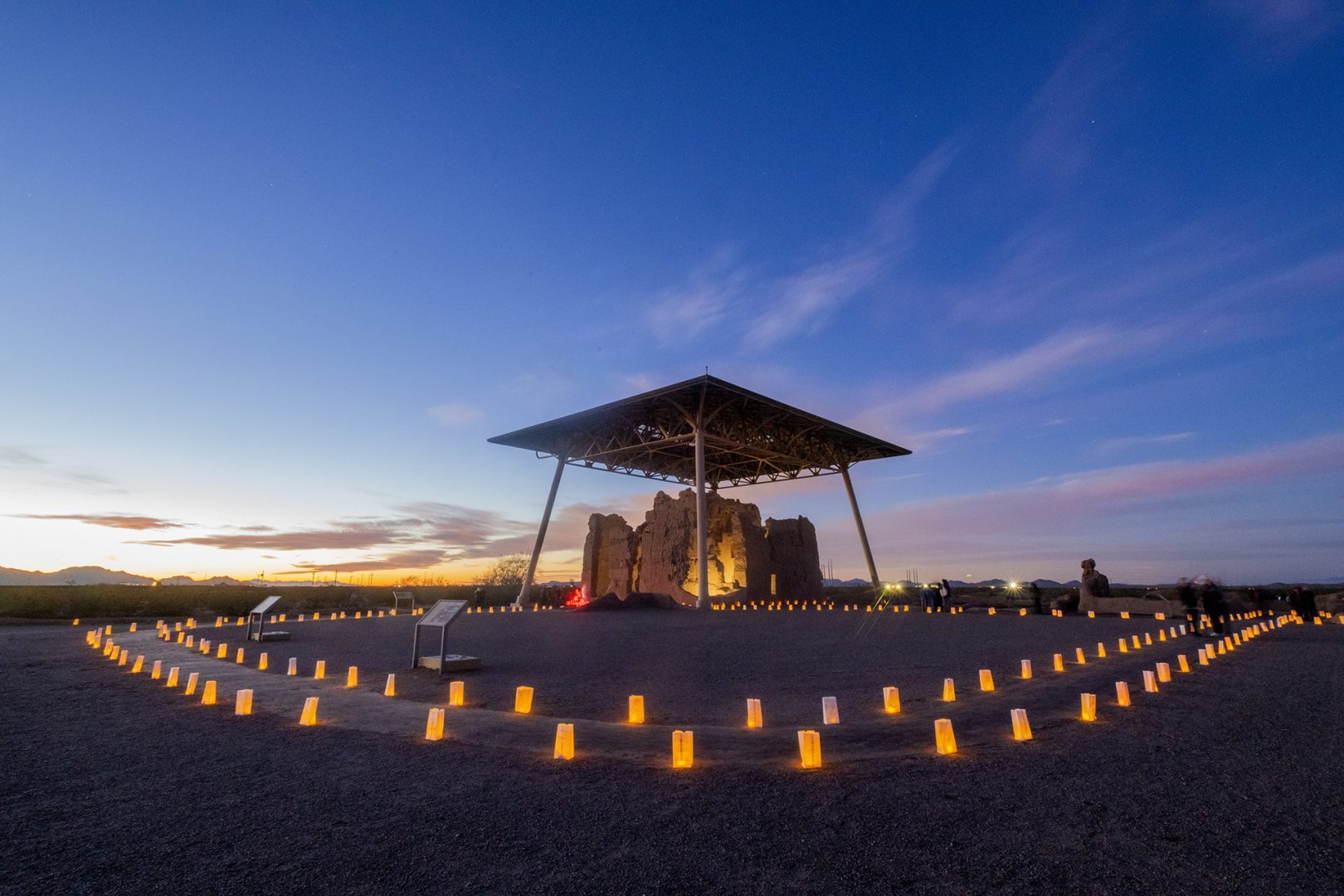
Visit Casa Grande Ruins National Monument All Year
A visit to Casa Grande Ruins National Monument is a great way to learn about the people, the culture, and the changes that took place over thousands of years and into the present. Throughout the year, the monument is opened daily, 9am-4pm, except for the holidays of Thanksgiving, Christmas, Juneteenth, and Independence Day. You can also learn even more about the history of this site by checking out the official website at www.nps.gov/cagr.
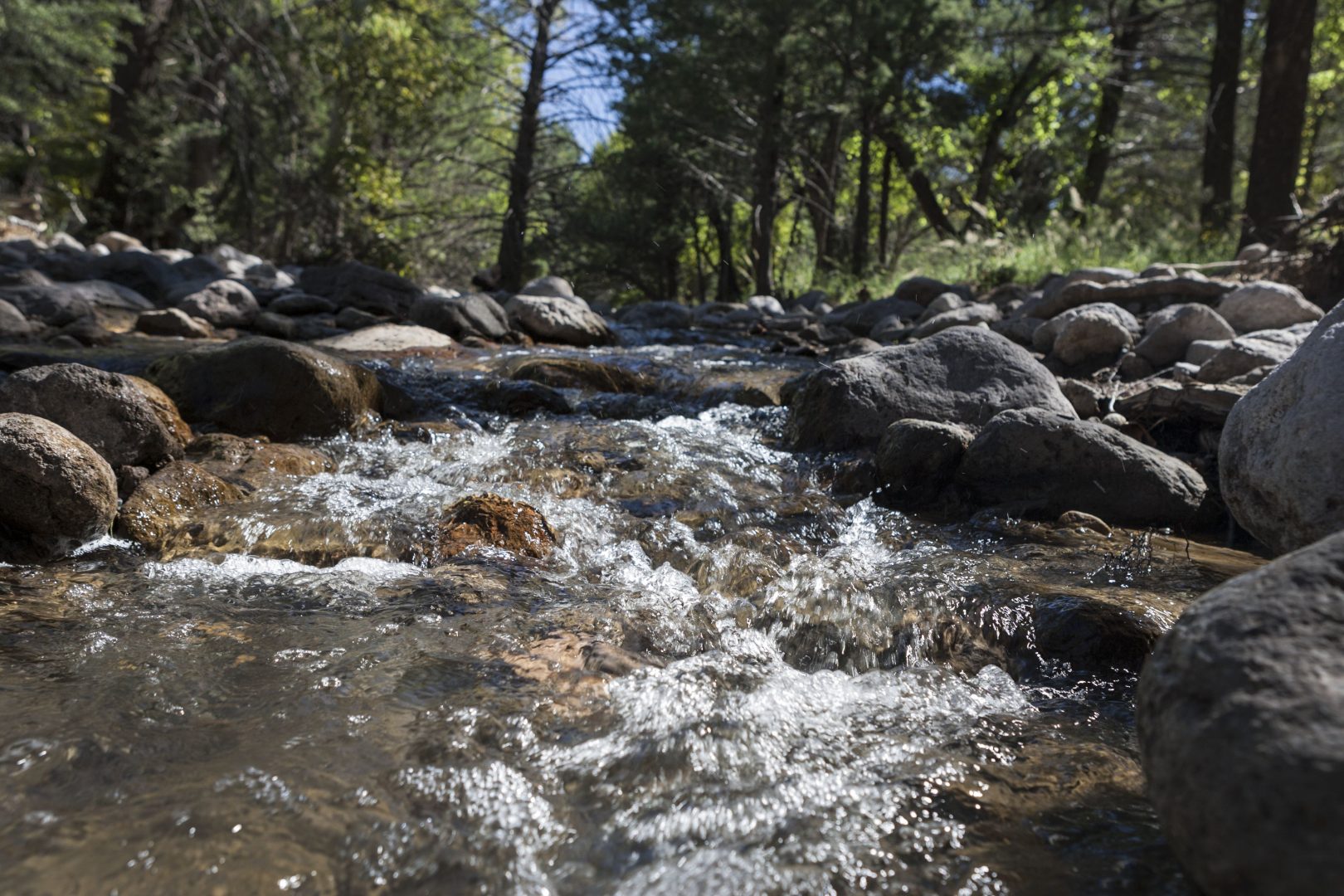
Want to show your love and support for these incredible lands?
Shop WNPA’s collection of apparel, books, collectibles, and more!



